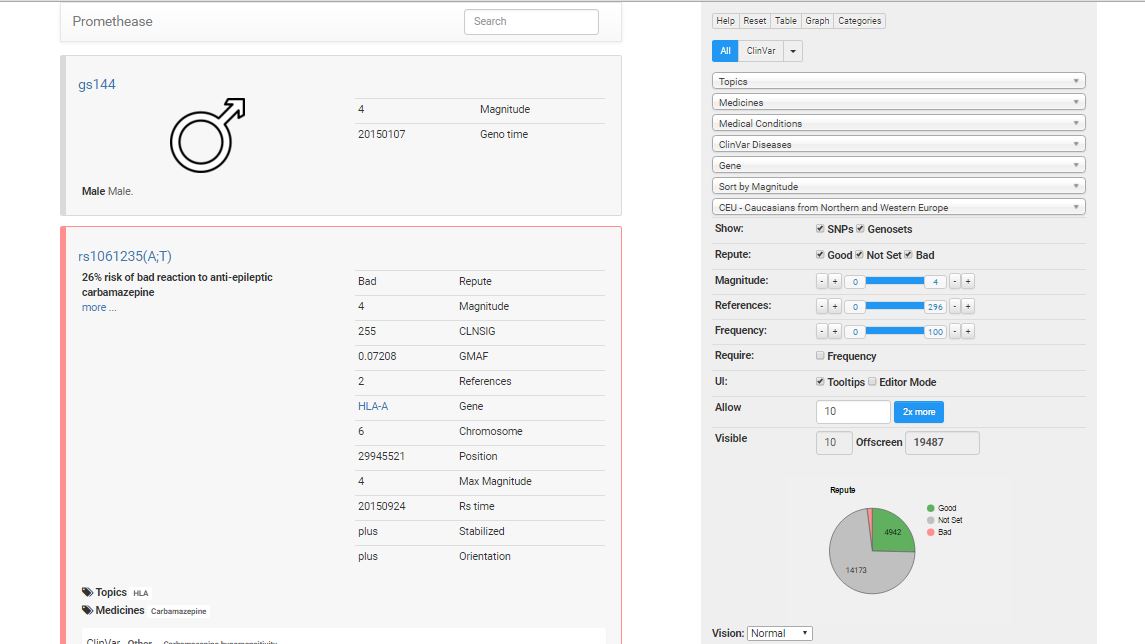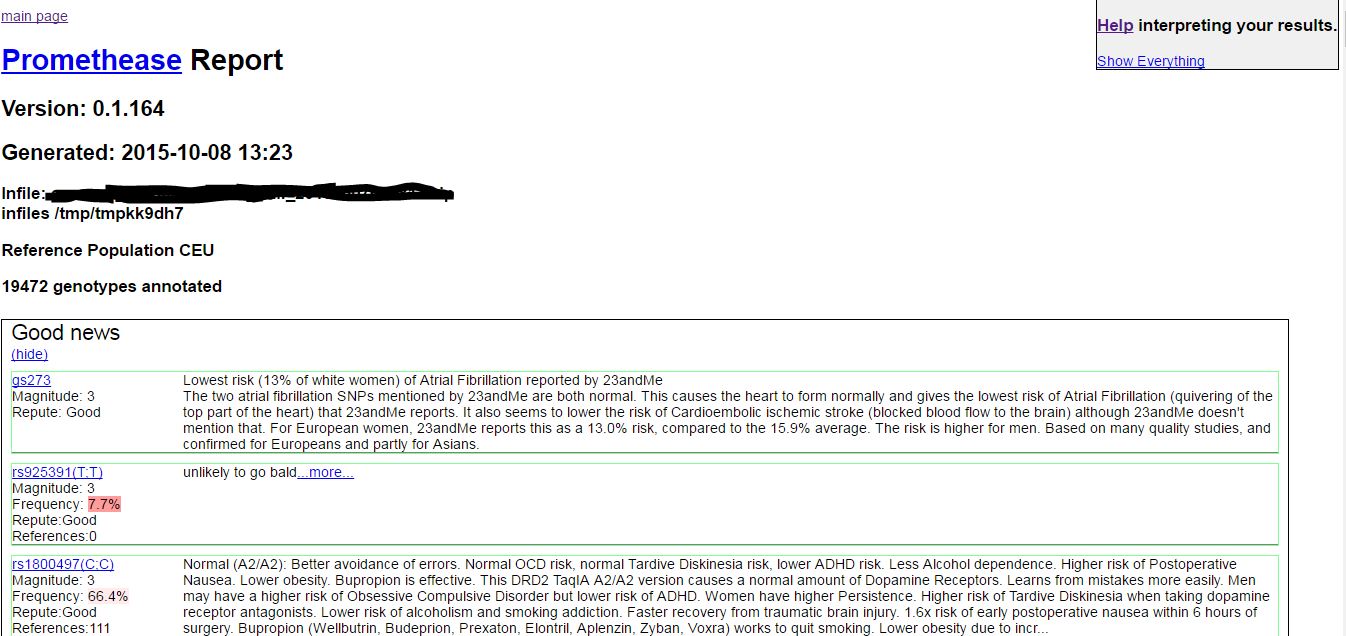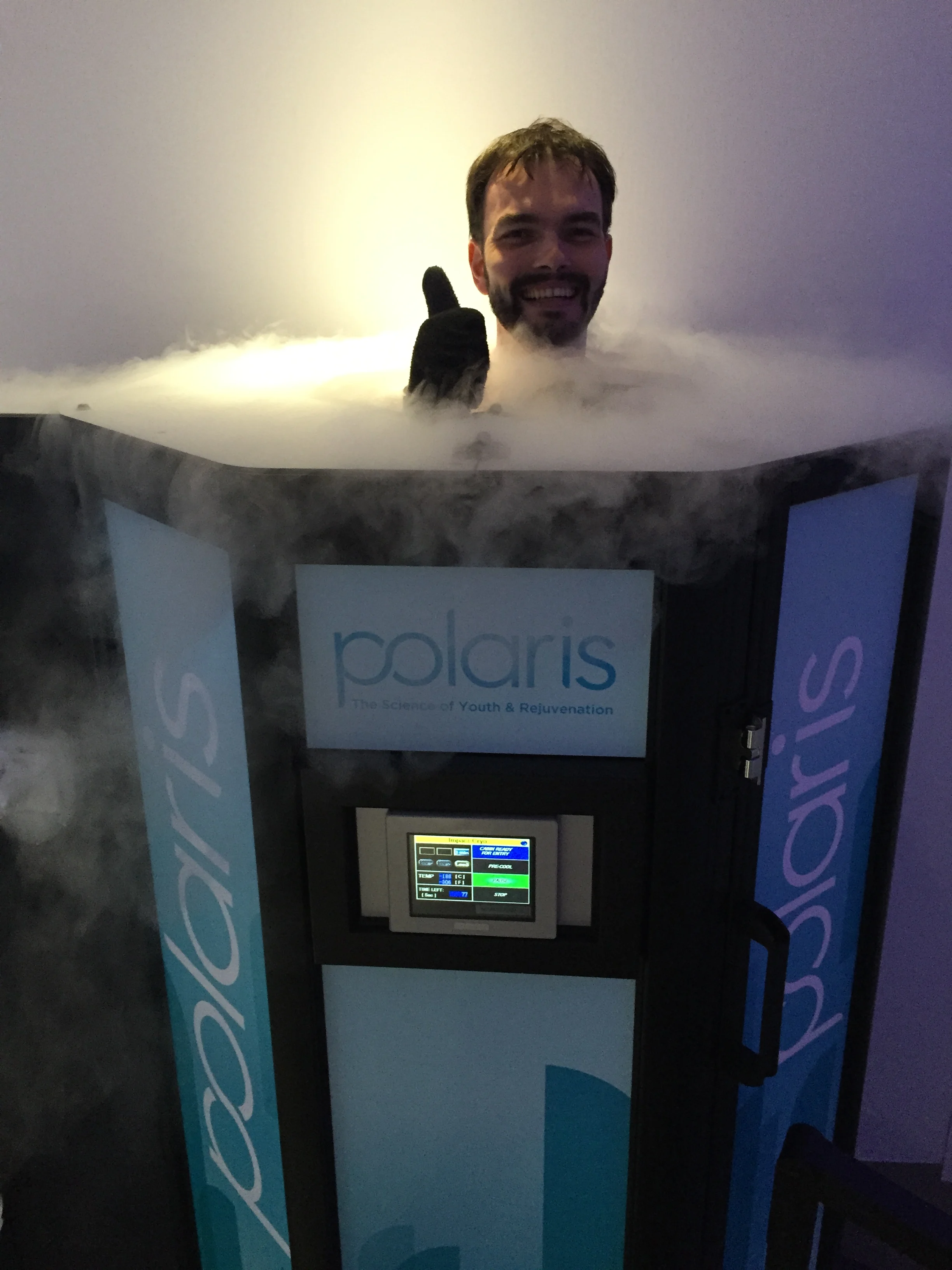Deconstructed Me – What I Learned About Myself Through DNA analysis
If you are interested in this topic, you might also like Round 4 of the Life-Sparring Podcast with Dena Goldberg, aka Dena DNA. We cover a large range of questions around DNA testing for health.
As long as I can remember, I have been fascinated by a set of existential questions:
“What makes us who we are? How much of us is just a combination of ancestral genes and how much does society shape us? How much of us is truly “self-made” by the paths we took in our life and the conscious decisions we made? And why do I never get a six-pack?
I might never fully answer all the above questions, but finding additional pieces to the mosaic self-portrait has somehow become a mission for me.
In several Life-Sparring rounds I mentioned my obsession with self-analytics in general and the Quantified Self (QS) movement in particular. This interest has its origin in the questions mentioned and is further fueled by the idea that the human organism is a very complicated machine with an incredibly large number of parameters and variables.
If no two humans are completely identically, it would be foolish to believe that a one-recipe-fits-all approach would lead to optimal results in medicine, training, or nutrition. Quantified Self is, in many ways, the antidote to the trend of “big data”. Big data accumulates, averages and tries to generate recipes for the masses. QS in contrast analyzes the single individual, trying to identify what works for one particular person.
One of the more technical exercises I did in the eternal journey to myself was getting my DNA analyzed by 23andMe, the iconic pioneer in DNA testing for the broad masses. Currently priced at US $149 + shipping (international) and US $199 (USA), California-based 23andMe performs an analysis covering 611,000 of roughly 10 million human SNP genotypes (SNP or single nucleotide polymorphisms are gene variations, differences in an individual DNA block). Now I truly can say I quantified myself, or at least 6% of me.
The service of 23andMe is incredibly easy to use. You order online, register the kit once you receive it in your post, fill the plastic capsule with your spit, seal it, and ship it back to the lab. Roughly three to four weeks later, you can access your results online.
Until recently 23andMe was not serving Hong Kong directly, so when I did the test last year, I had to order the kit via my U.S. drop-ship address at Borderlinx. Finding a courier to ship my spit aka the test kit back to the U.S. proved difficult, as “human specimen” and liquid contents in general are highly restricted with most courier companies. In the end I shipped through the good old postal system.
Anyway, in the meantime 23andMe serves almost all countries worldwide with direct shipping options, so no more walk-around is needed.
The scope of reports provided by 23andMe also changed recently. At the time I received the results of my test (October 2015), 23andMe just provided ancestry information. While it might be nice to know for cocktail party banter that my paternal haplotype is I2b1*(a chromosome type mainly spread in southern and eastern Europe) and I have 4% Neanderthal DNA inside of me, there is not much of value in terms of actionable information in this data.
Since 23andMe settled their dispute with the U.S. regulation agency FDA at the end of 2015, they started to provide some health data again. Core part currently is a carrier report for 36 genetic disorders (luckily I came out clean/negative for all 36 potentially devastating defects) and six reports on wellness-related issues. Notable among the wellness reports are the findings that my fast-twitch muscle fibers likely do not have the alpha-actinin-3 protein, which makes me less likely a sprinter/explosive lifter (ACTN3 gene) and that I am less likely a deep sleeper (ADA gene). Both conforms with my self-perception. While I love long-distance activities, I always was ridiculously bad in sprinting and my sleep is light enough to wake up from the opening apartment door when my fiancé comes home from a late shift.
While 23andMe is likely to continue adding new reports from time to time, the true value of the service at the moment still lies in the downloadable raw data file. Once your DNA analysis is online on 23andMe, you can download a zip file of all your SNP variations. By providing this option to download SNP raw data, 23andMe paved the road for a whole industry of analytic tools and services, from health-focused forums to companies offering personalized nutritional recommendations based on your gene variations.
Firing up my 23andMe data
My research on the best meta-tools to interpret my SNP data led me to Promethease. Promethease is an analytic tool that matches raw data from 23andMe and a few other gene test providers, with the massive wiki-style SNPedia databank for gene variations. Per February 19, 2016, SNPedia contained entries for 82,257 SNPs.
An individual Promethease report costs US$ 5 and is downloadable. Raw data uploaded for analysis is deleted after 24 hours; the report itself is removed from the server after 45 days.
Gene variation reports generated with Promethease are simply massive. My report ran in October 2015, produced a whopping number of 19,472 genotype annotations. As SNPedia is rapidly expanding, fed by an active community and an ever-growing number of published research studies, the report at a later point in time should produce even more information.
The incredible breadth of the Promethease report is a blessing and a curse. For a beginner, the wealth of references and potential effects are simply overwhelming. However, a large number of my 19,472 variations are either very common or simply not known for any meaningful effect.
Promethease tries to address the “needle in the haystack” issue, by providing different forms of reports and a “magnitude factor”, a community-based factor of interest in specific SNPs.
The “good/bad/interesting” report, for example, separates variations reported to have good, bad, and neutral influence, sorted by decreasing magnitude. This report is the perfect gateway to start digging into your data.
There is also a report called “is a medicine”, sorting all referenced SNPs by drugs mentioned in the references. This report is potentially highly useful when trying to evaluate a medical treatment. My report, for example, contains 15 SNPs known/suspected to influence the effect of aspirin, one of them being a 2.1x risk of aspirin-induced asthma (rs4794067(C;C), based on a study of 72 patients vs. 640 controls in a study of a Japanese population). A similar report is sorted by medical conditions mentioned. One disease referenced in a lot of my SNPs is of Crohn’s disease, (rs2066844(C;T), rs12567232(A;G), and others).
The most interesting findings out of my Promethease reports:
The Good:
lowered men's odds of baldness by 11x baldness, rs925391(T;T), Magnitude 3, Frequency 7.
Sadly I am still losing my hair, though, while my dad has full hair in his sixties. Maybe stress and environmental influence?
0.05x (thus greatly) reduced risk for developing progressive supra-nuclear palsy, rs8070723(G;G), Magnitude 2.5, Frequency 0.9%
Nice to have, PSP sounds like an awful condition. So guess I am lucky here.
0.44x decreased age-related macular degeneration risk, rs2511989(A;A), Magnitude 2.2, Frequency 22.1%
Not that rare, but nice to have. My eyes are still good (no glasses needed), looks as if chances are decent it will stay like this.
YP1A2 fast metabolizer status means that you are less stimulated by caffeine, gs159, Magnitude 2, also rs762551(A;A), magnitude 2, Frequency 53.1 %.
Consistent with anecdotal evidence. I rarely feel anything particular when drinking coffee.
The Bad:
1.7x risk of rheumatoid arthritis, rs6920220(A;A), Magnitude 3.5, Frequency 2.7%
Pretty rare and pretty bad. I seem to be prone to all kinds of inflammations in general.
3x higher risk for Crohn's disease, rs2066844(C;T), Magnitude 3, Frequency 21.5%
3.2 of 1000 people in Europe and North America have Crohn’s, so even though my risk is 1.7x higher, the chance only is increased from 0.32% to 0.54%. Sometimes it’s important to keep things in perspective.
2.5x increased risk for type 2 diabetes, rs5219(T;T), Magnitude 2.5
Fairly often referenced and given that type 2 diabetes is fairly common, this thread is much scarier than many other risk factors.
Substantially increased odds of developing V617F-positive MPN, rs3780374(A;A), Magnitude 2.8, Frequency 8.8% and others
A form of bone marrow disease, need to take a closer look at this.
The Promethease report as it is, is not meant to provide simple answers. It is more a key, decoding the secret language of the raw data and enabling you to dig into your own DNA. So just like Prometheus gave the fire to the humans (after stealing it from the Olymp), Promethease gives us the proverbial fire of understanding our own DNA.
Finding my fitness in my genes
Similar in its functionality and also linked to SNPedia, but targeted much narrower on gene variations known to be related to metabolism and nutrition, is the free report of Dr. Rhonda Patrick. Dr. Patrick is a researcher and blogger specializing in everything related to the human metabolism. Her FoundMyFitness podcast tends to be fairly technical, but is an incredibly rich resource for anyone interesting in optimizing health and fitness. As if this would not be enough, Dr. Patrick developed a nutrigenomics tool, free to use for all people signed up to her website.
In contrast to Promethease, the FoundMyFitness report is focused primarily on actionable advice. Instead of more than 19,000 SNPs, my report ran with my 23andMe raw data in April, produced just 15 findings. The highlights:
Increased risk of celiac disease and potentially sensitivity to gluten (rs3184504(T;T))
Potentially abnormal fat metabolism (increased diabetes and obesity risk if consuming high saturated fat intake and low mono and polyunsaturated fat intake) (rs1801282(C;C))
1.3-fold increased obesity risk and decreased thermogenesis (rs1421085(C;T)), effects possibly can be reduced by sport and fish oil supplementation,
1.67-fold increased risk for obesity particularly with high saturated fat intake (rs1121980(C;T))
Two- to four-fold increased risk for blood cancer (rs12340895(G;G)), possibly mitigated by intermittent fasting
high risk of bladder cancer (rs9642880(T;T)), possibly mitigation through eating cruciferous vegetables (broccoli, Brussels sprouts)
possible genetic risk for vitamin D deficiency (rs2282679(A;C))
So according to Dr. Rhonda Patrick, I better reduce my intake of saturated fat, supplement with fish oil (which I do anyway), introduce a regular intermittent fasting day, eat broccoli and other cruciferous vegetables on regular basis, check on my vitamin D level, and possibly test for gluten sensitivity. Definitely something to work with for further tests.
In summary, I have to admit that I am still at the beginning of unlocking the information stored in my DNA. As you see, the interpretation of the results (beyond the obvious) is not as straightforward as you would think. After all, genes are just one of many factors influencing our health and our bodily functions. After all, life is a game of chances, and genes most of the time just lower or raise the chances for specific outcomes. Luckily I am not a carrier of any severe genetically transmitted disease, which is a good base for family plans.
This first round of analysis of my SNPs gave me definitely a few hints for further research. I definitely want to test for a possible gluten sensitivity as I also seem to react very positively to a low-carb diet. I also want to check my vitamin D levels and do further research on inflammatory reactions and diseases. The result definitely adds further motivation to experiment with intermittent fasting, an idea I was toying with for a while. I will definitely keep you updated about further findings.
How about you? Do you actually want to know about your DNA variations and their potentially positive or negative influence? Did you do a DNA analysis already? Was there any actionable finding in your analysis?












